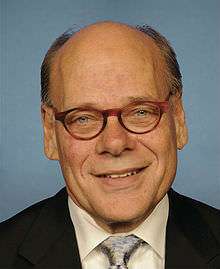Steve Cohen Calls Marijuana Prohibition Unjust, Wonders Why Obama Is So Stingy With Commutations

At Wednesday's House Judiciary Committee hearing, Rep. Steve Cohen (D-Tenn.) mentioned two areas of drug policy where President Obama could act unilaterally to remedy clear injustices:
The disparity in crack and cocaine, we changed the law, all those people in there who serve longer time than they would have under the law now, the president could commute their sentences.
And one of the greatest threats to liberty has been the government taking people's liberty for things the people are in favor of.
The Pew Research Group shows that 52 percent of Americans think marijuana should not be illegal, and yet there are people in jail and your Justice Department is continuing to put people in jail for sale and use on occasion of marijuana. That's something the American public has finally caught up with. There was a cultural lag, and it's been an injustice for 40 years in this country to take people's liberty for something that was similar to alcohol.
You have continued what is allowing the Mexican cartels' power and the power to make money, ruin Mexico and hurt our country by having a prohibition in the late 20th and 21st century. We saw it didn't work in this country in the '20s; we remedied it. This is the time to remedy this prohibition, and I would hope you would do so.
Obama supported the Fair Sentencing Act of 2010, which shrank the irrational penalty gap between crack and cocaine powder. But that law did not apply retroactively. The upshot is that thousands of crack offenders continue to serve sentences that Obama has said are excessively long. Yet he has barely lifted a finger to help people who by his own account do not belong in prison, issuing a grand total of one commutation during his four and a half years in office.
Unlike commutations, repealing marijuana prohibition is not something Obama can do on his own. But he can allow Colorado and Washington to legalize marijuana without federal interference, and those experiments could ultimately lead to the end of federal prohibition, just as state resistance to alcohol prohibition helped end that costly and invasive attempt to stop people from consuming a politically disfavored drug.
Cohen is an important voice for drug policy reform in the House, but I wonder how far he would carry the argument that it is unwise and unjust to ban "something that [is] similar to alcohol," in the sense that it can be (and typically is) consumed in moderation without causing significant harm to the user or others. Since that is true of pretty much every psychoactive substance that large numbers of people are interested in consuming, the implications of Cohen's principle extend beyond marijuana.
